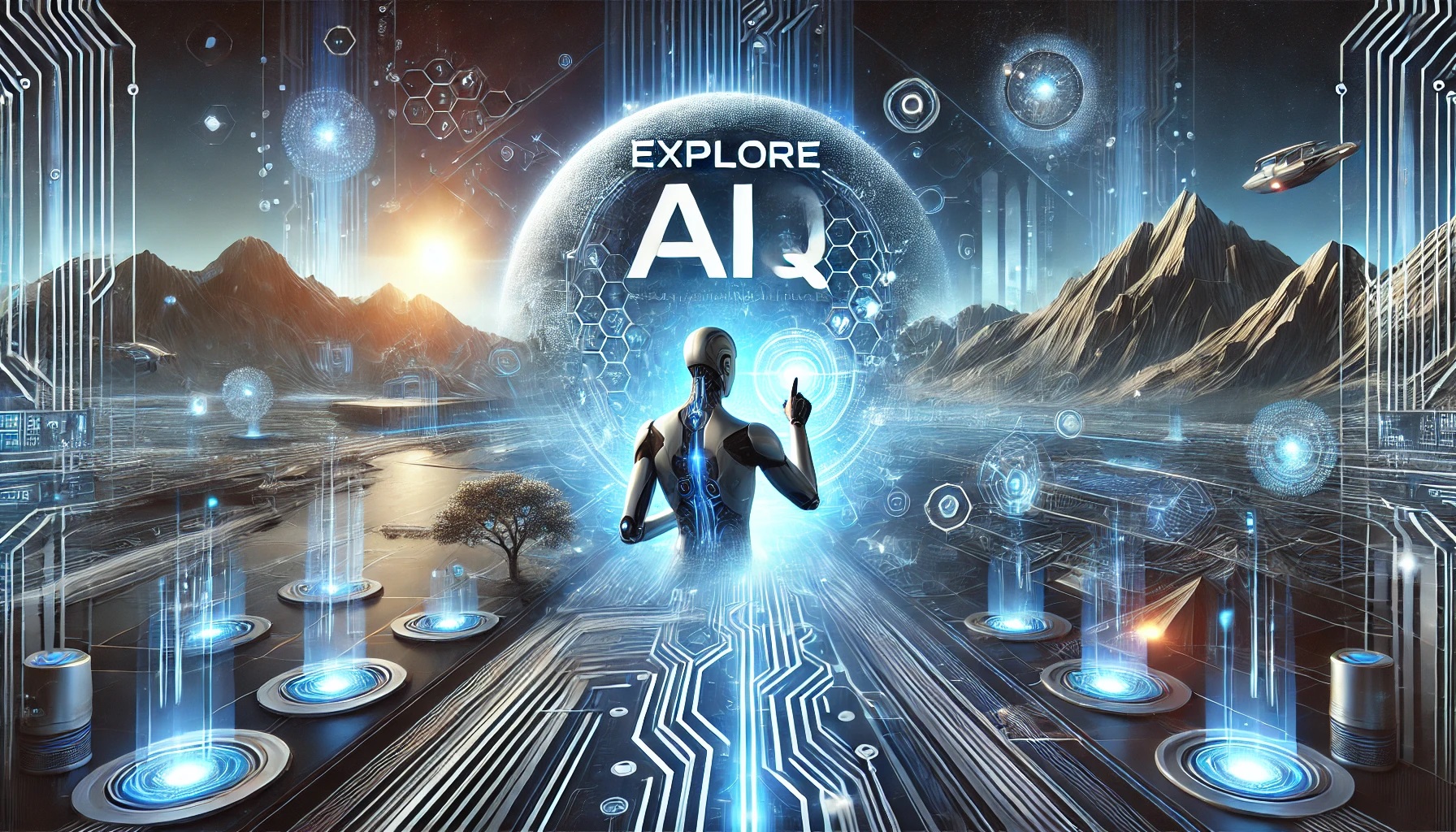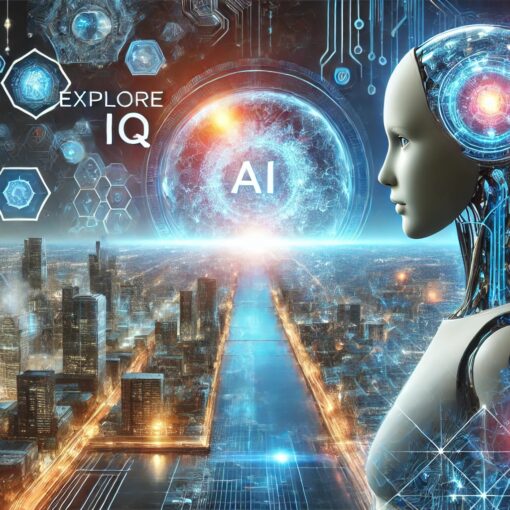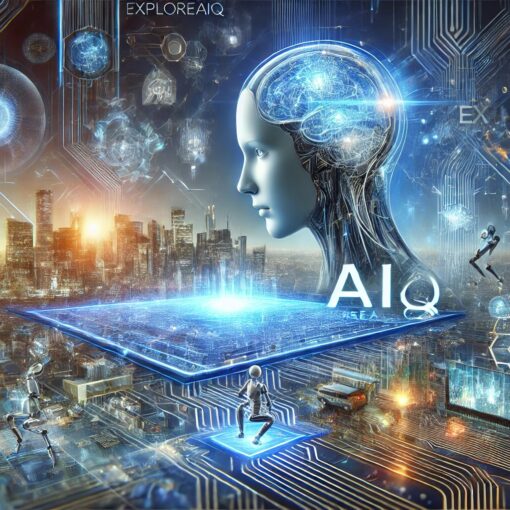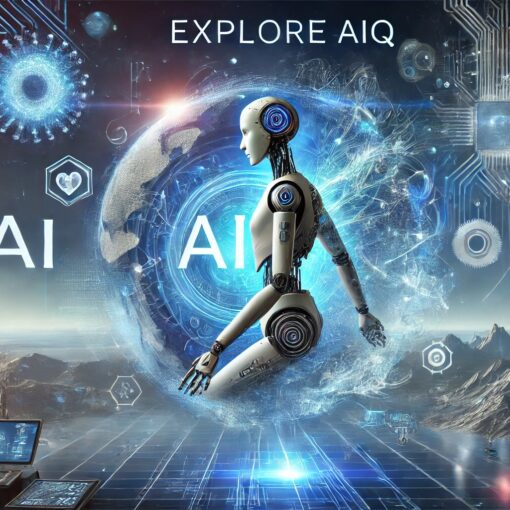Revolutionizing Patient Care
Introduction: A New Era in Medicine
Artificial Intelligence (AI) is transforming healthcare, offering innovative solutions to some of the most pressing challenges in medicine. From diagnosing diseases to improving patient care, AI is reshaping how healthcare is delivered, making it more accurate, accessible, and efficient.
In this installment of the AI Terminologies Series, we’ll explore the profound impact of AI on healthcare, its applications, and the challenges and ethical considerations that come with integrating AI into medical practice.
1. Early Disease Detection and Diagnostics
AI’s Role:
AI-powered tools analyze medical data to identify diseases in their early stages, often before symptoms appear.
Applications:
- Medical Imaging: AI systems detect anomalies in X-rays, MRIs, and CT scans.
- Cancer Detection: AI models identify early signs of cancers like breast and lung cancer.
- Predictive Analytics: AI predicts the likelihood of diseases based on genetic, lifestyle, and environmental data.
Example:
Google’s AI model achieved high accuracy in detecting breast cancer from mammograms, often outperforming radiologists.
2. Personalized Treatment Plans
AI’s Role:
AI tailors treatments to individual patients by analyzing their medical history, genetics, and lifestyle.
Applications:
- Precision Medicine: AI suggests treatments based on a patient’s genetic profile.
- Drug Interaction Warnings: AI alerts doctors about potential drug interactions.
- Patient Monitoring: AI tracks health data from wearables to recommend adjustments in treatment.
Example:
IBM Watson Health uses AI to analyze large datasets and recommend personalized cancer treatments.
3. AI-Powered Drug Discovery
AI’s Role:
AI accelerates drug discovery by identifying potential candidates and simulating their effects.
Applications:
- Target Identification: AI identifies biological targets for drug development.
- Compound Screening: AI evaluates millions of chemical compounds for potential drugs.
- Clinical Trial Optimization: AI selects participants and predicts trial outcomes.
Example:
Exscientia, an AI-driven pharmaceutical company, developed a drug for OCD that entered human trials in record time.
4. Enhancing Patient Care with Virtual Assistants
AI’s Role:
AI virtual assistants streamline patient interactions, from appointment scheduling to answering health-related queries.
Applications:
- Symptom Checkers: AI tools guide patients to appropriate care based on symptoms.
- Medication Reminders: AI-powered apps remind patients to take medications on time.
- Chatbots: AI answers common healthcare questions, reducing the burden on medical staff.
Example:
Babylon Health’s AI chatbot provides preliminary health assessments based on patient-reported symptoms.
5. Remote Patient Monitoring and Telemedicine
AI’s Role:
AI enhances telemedicine by enabling remote monitoring and real-time insights into patient health.
Applications:
- Wearable Devices: AI analyzes data from wearables to monitor heart rate, glucose levels, and more.
- Real-Time Alerts: AI notifies healthcare providers of critical changes in a patient’s condition.
- Virtual Consultations: AI tools assist doctors during telemedicine appointments.
Example:
Apple Watch’s AI-powered ECG feature detects irregular heart rhythms, potentially saving lives.
6. Managing Healthcare Operations
AI’s Role:
AI optimizes hospital operations, improving efficiency and reducing costs.
Applications:
- Resource Allocation: AI predicts patient inflow and allocates resources accordingly.
- Staff Scheduling: AI creates efficient schedules for medical staff.
- Supply Chain Management: AI tracks inventory and predicts demand for medical supplies.
Example:
Mayo Clinic uses AI to forecast patient admissions, ensuring optimal staffing levels.
7. Tackling Global Health Challenges
AI’s Role:
AI addresses global health issues like epidemics and healthcare accessibility.
Applications:
- Epidemic Prediction: AI models track and predict disease outbreaks.
- Rural Healthcare: AI-powered devices provide diagnostics in remote areas.
- Vaccination Campaigns: AI identifies populations most in need of vaccines.
Example:
BlueDot’s AI system detected the COVID-19 outbreak nine days before the World Health Organization’s official announcement.
Challenges of AI in Healthcare
- Data Privacy and Security:
- Safeguarding sensitive patient data from breaches.
- Algorithm Bias:
- Ensuring AI systems work equitably across diverse populations.
- Regulatory Hurdles:
- Navigating complex approval processes for AI-driven medical devices.
- Integration into Workflows:
- Ensuring AI tools seamlessly integrate into existing healthcare systems.
Solutions:
- Implement robust data protection measures.
- Train AI on diverse datasets.
- Collaborate with regulatory bodies for streamlined approvals.
Ethical Considerations in AI Healthcare
- Transparency:
- Ensuring patients and providers understand how AI makes decisions.
- Accountability:
- Defining responsibility when AI systems make errors.
- Access and Equity:
- Ensuring AI tools are available to underserved populations.
Example:
Developing AI solutions for low-resource settings, such as mobile diagnostic tools.
Future Trends in AI Healthcare
- AI-Driven Preventive Healthcare:
- Predicting and preventing diseases before they occur.
- Digital Twins:
- Using AI to create virtual models of patients for personalized simulations.
- AI and Robotics:
- Enhancing surgical precision with AI-powered robotic systems.
- Global Health Monitoring:
- Real-time tracking of global health data for faster responses to pandemics.
How to Embrace AI in Healthcare
- For Healthcare Professionals:
- Learn to use AI-powered tools in your practice.
- Stay updated on AI advancements through training and conferences.
- For Patients:
- Use AI-driven apps for fitness tracking and health monitoring.
- Educate yourself about the AI tools used in your care.
- For Organizations:
- Invest in AI solutions that enhance patient outcomes and operational efficiency.
- Ensure ethical practices in AI development and deployment.
Conclusion: The AI Revolution in Medicine
AI is transforming healthcare by improving diagnostics, personalizing treatments, and making care more accessible. By addressing challenges and embracing innovations, we can create a healthcare system that is smarter, more efficient, and focused on patient well-being.
Stay tuned to Explore AIQ as we continue exploring the transformative power of AI in various domains, uncovering how it’s reshaping our world for the better.




